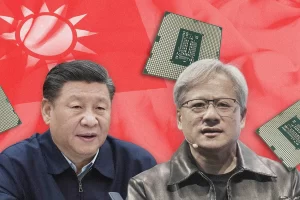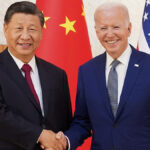Introduction
The European Commission has provisionally concluded that the China’s Electric Vehicle Sector benefits from unfair subsidies. This conclusion stems from an ongoing investigation aimed at assessing the impact of these subsidies on the European Union’s BEV producers. The investigation also considers the likely consequences for importers, users, and consumers of BEVs in the EU.
Here’s a quick timeline of events:
- October 4, 2023: The EU Commission officially launched an anti-subsidy investigation into Chinese battery electric vehicle (BEV) imports. This came after complaints from European manufacturers about the affordability of Chinese EVs, attributing it to potential government subsidies.
- April 23, 2024: The EU Commission warned major Chinese EV makers BYD, SAIC, and Geely about their lack of cooperation in the probe. The Commission claimed these companies weren’t providing enough information on subsidies and supply chains.
- June 12, 2024: The situation escalated as the EU threatened to increase tariffs on Chinese electric vehicles by up to 38%, starting in July. This move is seen as a response to the alleged lack of cooperation from China.
The investigation is still ongoing, with the EU aiming to determine if Chinese subsidies are harming European BEV producers. If proven, the EU might impose countervailing duties on Chinese electric vehicles.
Background
The global market for electric vehicles has been rapidly expanding, with China emerging as a dominant player. The Chinese government has heavily subsidized its BEV sector, aiming to boost domestic production and secure a competitive edge in the international market. These subsidies have enabled Chinese manufacturers to produce BEVs at lower costs, which has resulted in a surge of Chinese BEV imports into the EU.
The EU, home to several leading automotive manufacturers, has been investing heavily in its own BEV sector to transition towards greener transportation solutions. However, European producers have raised concerns that Chinese subsidies create an uneven playing field, making it difficult for them to compete.
Read More: Top 5 Machine Learning Libraries for Every Project – techovedas
Findings of the Investigation
The Commission’s investigation revealed that the China’s Electric Vehicle Sector benefits from substantial state support, posing a significant threat to the economic viability of EU-based BEV manufacturers. In light of these findings, the Commission has reached out to Chinese authorities to discuss possible resolutions that comply with World Trade Organization (WTO) regulations.
Why It Matters
The investigation’s findings are significant for several reasons:
- Economic Impact: Unfair subsidies distort market competition, making it difficult for European BEV manufacturers to compete on price. This threatens jobs and investment in the EU’s automotive sector.
- Market Fairness: Ensuring a level playing field is crucial for fair competition. Without addressing these subsidies, EU manufacturers are at a disadvantage, which can stifle innovation and growth within the industry.
- Environmental Goals: The EU has ambitious targets for reducing carbon emissions and promoting green technologies. A thriving domestic BEV sector is essential for achieving these goals. Unfair competition from subsidized imports could hinder progress towards these environmental objectives.
Provisional Countervailing Duties
To address these issues, the Commission has pre-disclosed the levels of provisional countervailing duties on BEV imports from China. These duties will take effect on July 4 if discussions with Chinese authorities fail to reach a satisfactory resolution. Customs in each EU Member State will initially implement the duties as a guarantee and will only collect them if the Commission imposes definitive duties.
The proposed individual duties for the three sampled Chinese producers are:
- BYD: 17.4%
- Geely: 20%
- SAIC: 38.1%
Other cooperating BEV producers in China, who were not sampled, will face a weighted average duty of 21%. Non-cooperating producers will be subject to a residual duty of 38.1%.
Read More: Top 5 Best-Selling Books on Semiconductor Technology 2024 Worldwide – techovedas
Next Steps and Procedure
The anti-subsidy investigation, which the Commission initiated on October 4, 2023, aims to conclude within a maximum of 13 months. Provisional countervailing duties, if necessary, may be announced by July 4, 2024. After implementing the provisional duties, definitive measures must be decided within four months.
At present, Tesla, a BEV producer in China, has requested an individually calculated duty rate. The Commission may consider this request at the definitive stage. Other companies not included in the final sample have the option to request an accelerated review. This review will assess their specific situations and can be requested once definitive measures are imposed.
Communication with Stakeholders
The Commission is providing detailed information about the intended provisional duties to all interested parties, including Union producers, importers, exporters, and their representative associations, as well as the Chinese government. This information is also publicly available on the Commission’s website.
Sampled companies have received specific details about their duty calculations and have the opportunity to comment on their accuracy. If these comments present sufficient counter-evidence, the Commission may revise its calculations according to EU law.
Read More: Intel Partners with Sharp to Utilize Underused LCD Plants for Chip Research – techovedas
Significance
The European Commission’s investigation and its provisional findings hold significant importance. By addressing unfair subsidies, the EU aims to protect its BEV sector, ensuring that European manufacturers can compete fairly. This is crucial for the health of the EU economy, the sustainability of its automotive sector, and the achievement of its environmental goals.
Moreover, the potential imposition of countervailing duties sends a strong message about the EU’s commitment to fair trade practices. It underscores the importance of maintaining a level playing field in the global market and safeguarding the interests of EU industries against unfair competition.
Read More: Air Liquide Commits $250 Million Investment to U.S. Semiconductor Industry – techovedas
Conclusion
The European Commission’s provisional conclusion highlights significant concerns regarding unfair subsidies in China’s Electric Vehicle Sector value chain. By imposing provisional countervailing duties, the Commission aims to protect EU BEV producers from economic injury and ensure fair competition in the market. The outcome of the ongoing discussions with Chinese authorities will be crucial in determining the final measures to be implemented. This investigation not only affects the immediate stakeholders but also has broader implications for trade relations and the future of green technology development in the EU.








